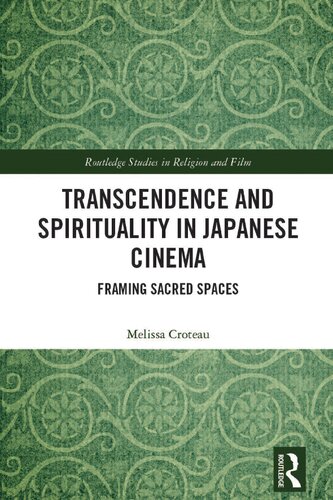

Most ebook files are in PDF format, so you can easily read them using various software such as Foxit Reader or directly on the Google Chrome browser.
Some ebook files are released by publishers in other formats such as .awz, .mobi, .epub, .fb2, etc. You may need to install specific software to read these formats on mobile/PC, such as Calibre.
Please read the tutorial at this link: https://ebookbell.com/faq
We offer FREE conversion to the popular formats you request; however, this may take some time. Therefore, right after payment, please email us, and we will try to provide the service as quickly as possible.
For some exceptional file formats or broken links (if any), please refrain from opening any disputes. Instead, email us first, and we will try to assist within a maximum of 6 hours.
EbookBell Team

4.3
8 reviewsThis book explores significant representations of Shinto and Buddhist sacred space, spiritual symbols, and religious concepts that are embedded in the secular framework of Japanese films aimed at general audiences in Japan and globally. These cinematic masterpieces by directors Akira Kurosawa, Hayao Miyazaki, Hirokazu Kore-eda, and Makoto Shinkai operate as expressions of and, potentially, catalysts for transcendence of various kinds, particularly during the Heisei era (1989–2019), when Japan experienced severe economic hardship and devastating natural disasters. The book’s approach to aesthetics and religion employs the multifaceted concepts of ma (structuring intervals, liminal space-time), kū (emptiness, sky), mono no aware (compassionate sensibility, resigned sadness), and musubi (generative interconnection), examining the dynamic, evolving nature of these ancient principles that are at once spiritual, aesthetic, and philosophical. Scholars and enthusiasts of Japanese cinema (live action and anime), religion and film, cinematic aesthetics, and the relationship between East Asian religions and the arts will find fresh perspectives on these in this book, which moves beyond conventional notions of transcendental style and essentialized approaches to the multivalent richness of Japanese aesthetics.